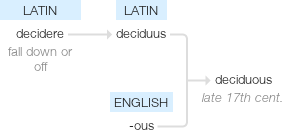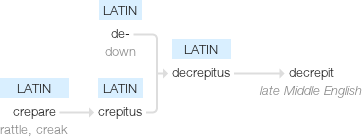1. Dabble
Etymology:

mid 16th cent.: from obsolete Dutch dabbelen, or a frequentative of the verb dab.
Meaning in English: to work in non-serious manner, splash around, immerse one’s hand or feet partially in water.
Meaning in Hindi: – ऊपरी ढंग से करना, भिगोना, छिड़काना
Usage in Sentence:
“Abhineet dabbled his feet in swimming pool.”
Synonyms: splash, paddle, wet, immerse, dampen, kid around.
Antonyms: take seriously.
Mnemonic: Dabble sounds like dabba and dabba people are not serious in their work.
2. Dais
Etymology:

Middle English (originally denoting a raised table for distinguished guests): from Old French deis, from Latin discus ‘disc or dish’ (later ‘table’). Little used after the Middle English period, the word was revived by antiquarians in the early 19th cent. with the disyllabic pronunciation.
Meaning in English: a low platform for speakers, a raised platform for seats of honors.
Meaning in Hindi: – मंच, चबूतरा, मचान, ऊंची जगह
Usage in Sentence:
“Rahul Gandhi was not looking comfortable at dais while delivering lecture on women empowernment.”
Synonyms: platform, stage, podium, bench.
Mnemonic: Dais sounds like desk. A desk is raised platform.
3. Dart
Etymology:

Middle English: from Old French, accusative of darz, dars, from a West Germanic word meaning ‘spear, lance’.
Meaning in English: running somewhere suddenly and rapidly, a small narrow missile than can be thrown or fired.
Meaning in Hindi: – झटपट चल पड़ना, तीव्र गति, शंकु
Usage in Sentence:
“The man darted across the street.”
Synonyms: flash, hurry, hurtle, hasten, rush, speed, thrust.
Antonyms: walk, slow, cease, end, finish, halt.
Mnemonic: Remember Blue dart courier is very fast.
4. Deadpan
Meaning in English: expressionless manner, no show of feelings.
Meaning in Hindi: – भावहीन
Usage in Sentence:
“Mohit was deadpan at his tragic loss.”
Synonyms: expressionless, impassive, unexpressive, blank, unreadable, wooden.
Antonyms: warm
Mnemonic: Sounds like deadman. A dead man has no feelings.
5. Debacle
Etymology:

early 19th cent. (in sense ‘the breaking up of ice in a river’): from French débâcle, from débâcler ‘unleash’, from dé- ‘un-’ + bâcler ‘to bar’ (from Latin baculum ‘staff’).
Meaning in English: a sudden downfall or defeat, a breaking up of ice in water, a sudden failure.
Meaning in Hindi: – विध्वंस, सर्वनाश, पानी का तोड़
Usage in Sentence:
“Indian cricket team suffered debacle at the hands of New Zealand team.”
Synonyms: fiasco, failure, catastrophe, failure, disaster, downfall, ruin, wreck, smash, washout.
Antonyms: creation, rise, accomplishment, success, triumph, win, victory.
Mnemonic: Belt having buckle. If buckle get removed in public, the pant would fall which is a complete disaster.
6. Debunk
Meaning in English: expose the falseness of idea.
Synonyms: demystify, puncture, expose, unmask.
Antonyms: flatter, prove, uphold.
7. Deciduous
Etymology:

late 17th cent.: from Latin deciduus (from decidere ‘fall down or off’).
Meaning in English: tree shedding its leaves annually, falling off of shed at particular season.
Meaning in Hindi: – पर्णपाती, पतझड़ी
Usage in Sentence:
“The forests of Punjab are deciduous in nature.”
Synonyms: temporary, momentary, short.
Antonyms: enduring, lasting, long-lived, permanent.
Mnemonic: Remember leaves of deciduous forest falls.
8. Decree
Etymology:

Middle English (denoting an edict issued by an ecclesiastical council to settle a point of doctrine or discipline): from Old French decre, decret, from Latin decretum ‘something decided’, from decernere ‘decide’.
Meaning in English: a formal or authoritative order, judgment of court of law, an official order.
Meaning in Hindi: – आदेश, अदालती हुक्म, आज्ञा, आज्ञप्ति, निर्णय
Usage in Sentence:
“It’s a presidential decree to maintain emergency in Gujarat.”
Synonyms: order, edict, command, mandate, proclamation, act, ordinance, law, judgement.
Antonyms: lawlessness.
Mnemonic: Decree sounds like degree. If you have degree then you have official order to work in government service.
9. Decrepit
Etymology:

ate Middle English: from Latin decrepitus, from de- ‘down’ + crepitus, past participle of crepare ‘rattle, creak’.
Meaning in English: ruined because of old age, in bad condition due to old age.
Meaning in Hindi: – जर्जर, निर्बल, पुराना, जराग्रस्त
Usage in Sentence:
“In old Delhi, there are many decrepit houses.”
Synonyms: broken down, creaky, antiquated, fragile, old, senile.
Antonyms: good, healthy, firm, stable, sound.
Mnemonic: Decrepit sounds like decrease. So its decrease in capacity of something.
10. Defame
Etymology:

Middle English: from Old French diffamer, from Latin diffamare ‘spread evil report’, from dis- (expressing removal) + fama ‘report’.
Meaning in English: damage the reputation, to disgrace.
Meaning in Hindi: – बदनाम करना, अपकीर्ति करना, कलंक लगाना
Usage in Sentence:
“Kejriwal alleged that TV channels defamed the Aam admi party.”
Synonyms: disgrace, discredit, blacken, dishonor, malign.
Antonyms: flatter, honor, praise, laud, complement.
Mnemonic: defame is like taking away someone’s fame.